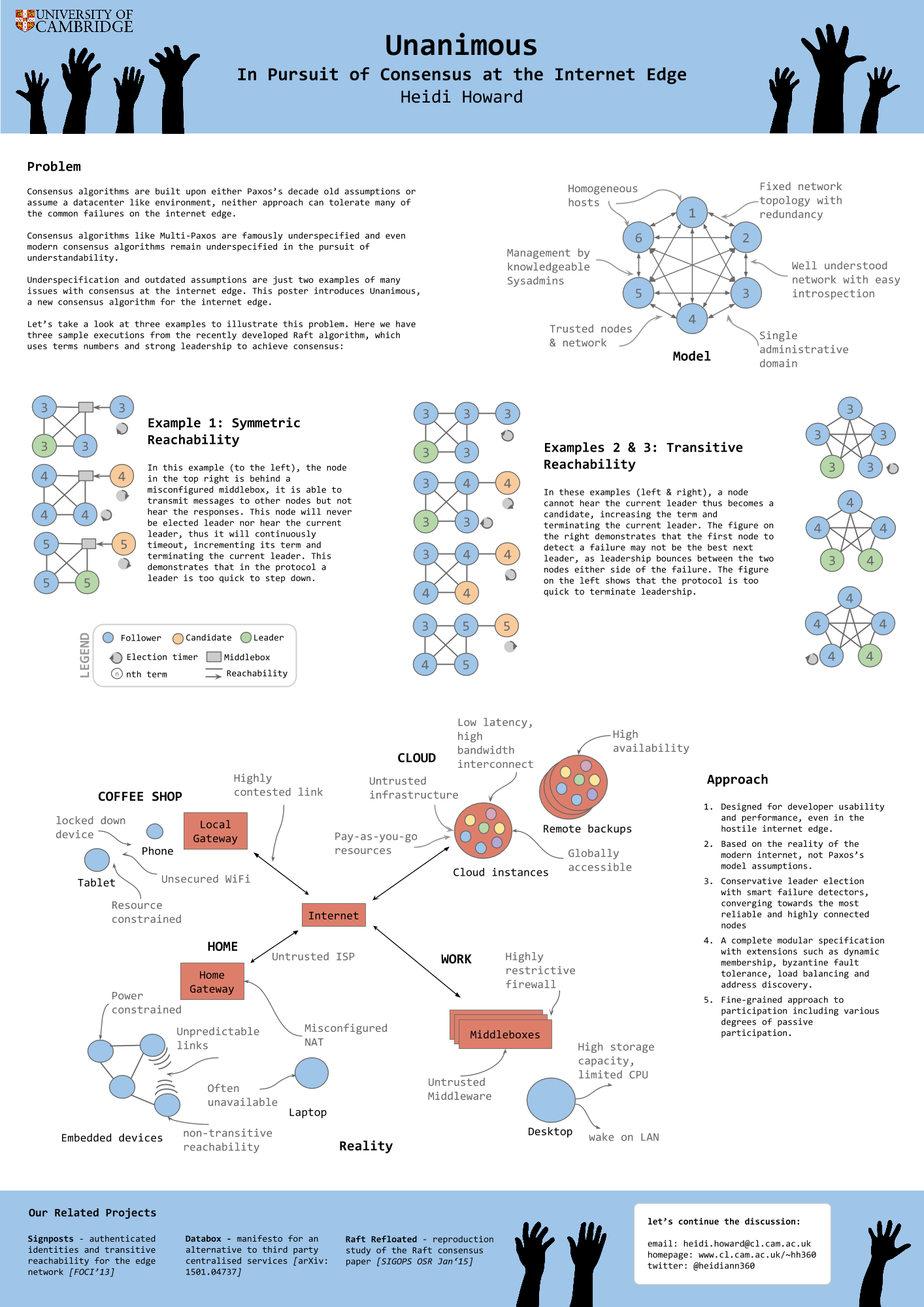I am pleased to announce that I’ll be speaking at this year’s QCon London. I’ll be speaking in the “Modern CS in the real world” track, hosted by none other than Adrian Colyer, from the morning paper. The abstract for my talk, Making the Impossible Possible is as follows:
In this talk, we explore how to construct resilient distributed systems on top of unreliable components.
Starting, almost two decades ago, with Leslie Lamport’s work on organising parliament for a Greek island. We will take a journey to today’s datacenters and the systems powering companies like Google, Amazon and Microsoft. Along the way, we will face interesting impossibility results, machines acting maliciously and the complexity of today’s networks.
Ultimately, we will discover how to reach agreement between many parties and from this, how to construct new fault-tolerance systems that we can depend upon everyday.
The talk will be based upon the material from my master lecture, Reaching reliable agreement in an unreliable world. The slides for which are online and below.
